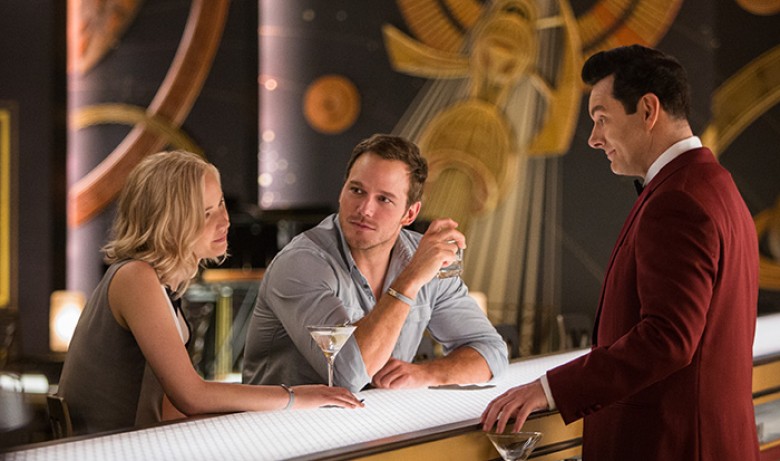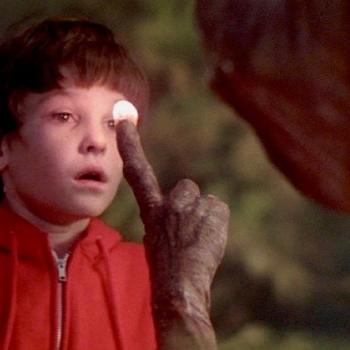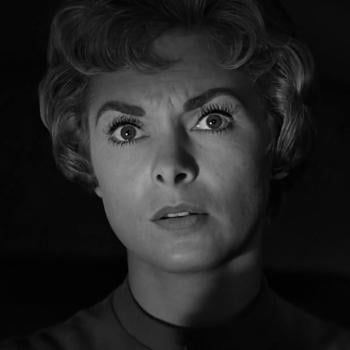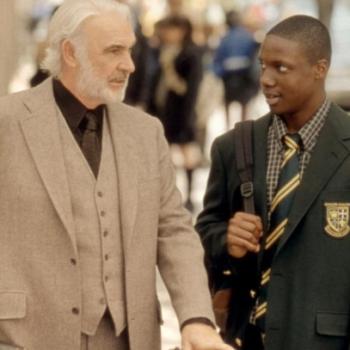
As a film enthusiast, there’s a little game I like to play called “which movies really hit different after spending a year in quarantine?” Among the frequent contenders is a relatively forgotten star vehicle for Jennifer Lawrence and Chris Pratt called Passengers from 2016.
The story is set on an interstellar cruise ship–the Starship Avalon–carrying 5,000 passengers from Earth to a new planet. The voyage takes 120 years, and so everyone on board is kept in suspended hibernation for the majority of the trip. But a malfunction causes Jim Preston to awaken thirty years into the process with no way to go back to sleep. He tries to play as though he’s the only guest on board the luxurious cruise ship, but a year in total solitude does things to a person. When he falls in love with another passenger, Aurora Lane, Jim is faced with a frightening possibility: should he end his own solitude even though it would mean condemning another person to his curse? Eventually, his loneliness wins out, and he sabotages Aurora’s pod, causing her to awaken.
Even though Jim is initially too ashamed to admit what he did to Aurora, a friendship quickly blossoms between the two of them, a friendship that eventually crystallizes into a romance. Their isolation becomes a heaven that is theirs to enjoy exclusively. That paradise is threatened first when Aurora learns that Jim woke her up deliberately, and again when the same malfunction that stranded Jim attacks the ship again. If they’re going to save the ship, Jim and Aurora need to brave not only the depths of the ship but also of their own hearts.

So … there’s obviously a moral dilemma central to this film, and said dilemma caused a lot of backlash upon the film’s release. Passengers plugs its protagonist, and the viewer with him, into an equation they’re not accustomed to, especially in a tentpole film. This makes it that much more interesting than standard Hollywood fare, but it also explains why audiences didn’t know how to receive it at the time, and still kind of don’t.
I’m not really going to wade too deep into this whirlpool in this piece. Half of my posts here are about learning to empathize with imperfect people anyways, and debating morality of Jim’s decision takes up much more space than I can afford here. (Though, I actually have divined into this very question in a post I wrote for another writing outlet and, yeah, I might as well give that a shameless plug here.) For the purposes of this piece, let’s take it as a given that Jim waking up Aurora is shocking but understandable. I’m more interested in other religious elements at work in the film.
In my recent viewing I scouted out a few religious themes at work in the characters, the narrative, and even the visuals. But the motif I’m most interested in is the film’s juxtaposition between the heavenly life and the mortal life.
People take the century long voyage with the promise that they’ll wake up on an interstellar cruise ship and reach a promised land, but it’s a promised land built on pleasure and comfort, not a land for enacting some divine mission as it is in the scriptures. This hedonistic end goal is what everyone is after, even if it is somewhat flaccid. Let’s call this “the mortal life.” Auroa actually calls out the hollowness of this mindset during her first interview with Jim when she asks him why he decided to leave earth. She presses him to stop speaking in slogans and dig into a more honest part of himself, opening the door for their first real interaction.
The failure of the ship further underscores the pitfalls of “the mortal life.” The passengers have essentially relied on the wisdom of man to carry them across the stars, and the isolation Jim experiences, and later Aurora with him, is a natural extrapolation of this. It’s a failure of the ship’s mechanics, but more significantly it’s an indictment of man’s hubris, of being so overconfident that the ship can go 120 year without malfunctioning that there isn’t even a precedent in the manual for what happens if a hibernation pod fails. It also reveals the emptiness of a life lived purely for pleasure. Jim finds out firsthand that having all the high scores on the dance-off scoreboard cannot assuage the emptiness of a life without being seen. And this is where the film explores what a heavenly life looks like.

There’s a space in that second quarter of the film where the plotting takes a pause and you get a series of sequences with nothing but Jim and Aurora bonding. Even in the romance genre, you don’t get a lot of mainstream film that devotes so much time purely to the development of a relationship, to having two characters peel back the layers of psyche and revealing the most vulnerable parts of themselves. These segments offer a glimpse into a world where people had nothing to do with their time but get to know one another on a transcendent level. In theory, this should not work, but it does here owing in large part to Pratt and Lawrence making these two living lottery numbers feel like the most interesting people in the world. Escaping into a world where you have free reign at the buffet table, the swimming pool, and the movie theater sounds like fun, but engaging with one another is what keeps us from drifting into the void of space.
One of the reasons I really respond to the film, owing to its controversy as much despite it, is that it puts into words and shape a part of the human experience that is specific yet universal. We’re fresh out of a pandemic where many of us went far too long without the grace of being challenged or tested by another person’s existence, or of sharing in each other’s joys and excitements. Luxury, comfort, and ease cannot replace the need to share one’s lived experiences with someone else.
What is heaven going to be? After we’re tired of playing harps and jumping on clouds, I think we’ll be spending a lot of time seeing each other.
/cdn.vox-cdn.com/uploads/chorus_image/image/52404081/passengerscover.0.jpeg)












